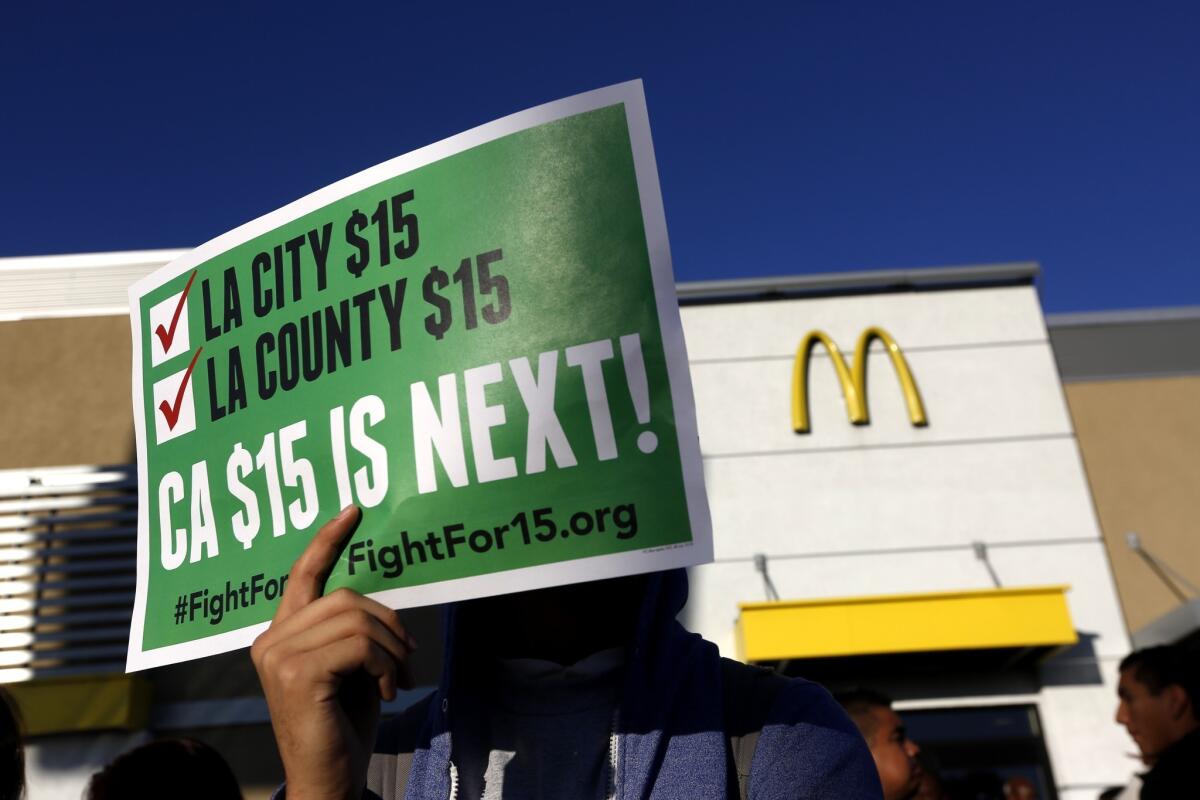Letters to the Editor: Do more than raise the minimum wage. Adopt price controls too

- Share via
To the editor: When we identify a societal problem, we rally to treat the symptoms and rarely the underlying condition. This is true with regard to poverty, which is defined as the inability to meet minimum living standards. (“COVID-19 bill must lose $15 minimum wage hike, Senate parliamentarian rules,” Feb. 25)
When one lives in poverty, everything is too expensive — the rent is too high, and food and transportation cost too much — and pay is too low. Filling the gap between what the poor have and what they need must address all of these for any chance of success.
Increasing the minimum wage unfairly forces one segment to pick up the entire tab. Let’s spread out the burden.
In 1971, the Richard Nixon administration (not exactly a bastion of socialism) enacted wide-ranging price controls in an attempt to ward off inflation (and get reelected). A similar approach today would be more fair and effective than just increasing the minimum wage, and it would actually have a chance at succeeding.
Otherwise, we’ll continue to play whack-a-mole.
Glenn Egelko, Ventura
..
To the editor: The Biden administration tried to attach a federal minimum wage increase (from $7.25 an hour to $15 an hour) to its $1.9-trillion COVID-19 rescue package. The increase wouldn’t be immediate, of course; it would be spread out over several years.
I still think it’s outrageous. How can anyone live on $15 an hour?
That’s about $30,000 a year, which sounds like a chunk of money, until you pay for rent, food, transportation and maybe a new pair of underwear. Then your $2,500 a month is stretched to the limit, leaving no money for emergencies.
And that’s for a single person.
I do sympathize with small businesses owners who are so desperately strapped, especially during the pandemic. But if a profit margin depends on paying employees a wage that keeps them on the edge of poverty if not deep in it, well, maybe the fault is not in our stars but in our business plan.
Bart Braverman, Indio
More to Read
A cure for the common opinion
Get thought-provoking perspectives with our weekly newsletter.
You may occasionally receive promotional content from the Los Angeles Times.










